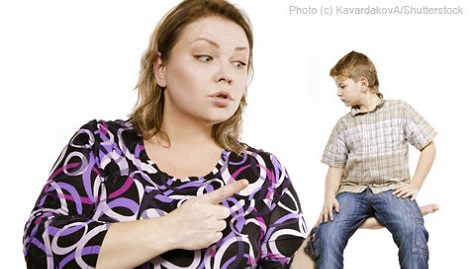|

Defeating Adultism
By Wendy Priesnitz
I want to talk about adultism. It is one of many “isms” in our vocabulary – racism, sexism, ageism, ableism, and so on – which address discrimination on the basis of things like ethnicity, economic status, gender, sexual orientation, age, and physical abilities. Many of us try to overturn these “isms” in our own lives and in the broader culture. But adultism is one “ism” that isn’t so often dealt with – even by progressives. In fact, I think that it may be the last frontier of “isms.” And that may be because its pervasiveness makes it almost invisible.
In our culture (and many, if not most, others in the world), adults have a special status of control over kids. Adults make decisions for their own and other people’s children, create rules that govern children’s day-to-day lives, and generally tell them what to do. That often manifests in ordering, directing, preaching, disciplining, demeaning, embarrassing, questioning, patting and other touching without permission, yanking, ignoring, yelling, and referring to children in the third person.
This behavior isn’t usually undertaken with abusive intent; indeed, most adults wield power over kids because they assume it’s their duty, as well as their right. Adults are thought to be entitled to these behaviors on the assumptions that they are superior to children and young people, and that they know best what’s good for the younger generation.
Scratch below the surface, and you’ll find that this sort of adult disrespect is inherited. It’s how we were treated as children by our parents and in our schools…and how our parents were treated by the generation before that. And it’s reinforced by other social institutions like churches and medical systems, as well as by laws. The context of the adult-child relationship in our society is power, hierarchy, mistrust, and coercion.
One of the places that adultism manifests itself is our education system. Most people believe that children and young people must be made to go to school or else they won’t learn. So we have created factories in which children are processed and warehouses where they are stored until it’s convenient for adults to have them around. Getting rid of the factory model of public education challenges not just our assumptions about how children learn, but a variety of agendas related to adultism and other sorts of power.
I wrote about this in the introduction to my book Challenging Assumptions in Education – From Institutionalized Education to a Learning Society:
“By our very use of words like ‘teaching’ and ‘schooling,’ we seem to accept the idea that some people at the top are doing things to other people farther down the totem pole. Public education reflects our society’s paternalistic, hierarchical worldview, which exploits children in the same way it takes the earth’s resources for granted. That is no way to help children grow up into compassionate citizens who think independently and participate in the life of their communities and countries.”
Arguing against adultism is difficult. Giving up power can make people fearful and leave them feeling threatened. They think “unschooling” means unparenting, and life learning means being uneducated.
But life learners are at the leading edge of an important attempt to broaden the definition of childhood, to respect children as whole people who are functioning members of society…and to improve our education system along the way.
Since we are already living the opposite of adultism, I believe that we life learners can contribute to the defeat of adultism by being conscious about how we speak to (and about) children, and by how we treat them. Both the behavior of respecting children that we model to other adults and the effect on our children of that fair treatment will help slay this last “ism” dragon.
Wendy Priesnitz is the editor of Life Learning Magazine. She is the mother of two adult daughters who learned without school, has been an advocate of self-directed education for over 45 years, and is the author of 13 books.
Copyright © Life Media
Privacy Policy
  
  

|

